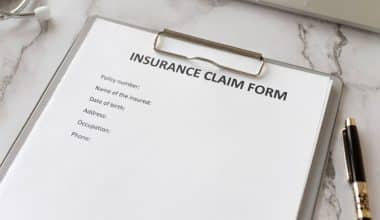Obtaining an insurance license is key to a rewarding and dynamic career in the insurance industry. This article provides the essential steps and insights needed to secure your insurance license. To obtain an insurance license, following the steps listed as a guide will get things done for you easily without stress. You should have an insurance license to avoid some unforeseen circumstances. Below is a detailed writing of how you can get an insurance license as well as the benefits obtained in various cities.
How To Get An Insurance License
An insurance license is a legal authorization that allows an individual to sell, underwrite, or otherwise engage in the business of insurance. This license is issued by a state’s insurance regulatory authority and is required to work in the insurance industry.
Steps on How To Get An Insurance License
To get an insurance license, you will need to follow a series of steps. They are
#1. Choose the Type of Insurance You Want to Sell
There are several types of insurance you can be licensed to sell, such as life insurance, property and casualty insurance, health insurance, and more. Research and learn about each type to determine which one you are interested in.
#2. Review the Licensing Requirements
Each state has its licensing requirements for insurance agents. These requirements typically include completing pre-licensing education courses, passing a licensing exam, and submitting an application. It is important to review the specific licensing requirements for your state.
#3. Complete Pre-Licensing Education
Most states require individuals to complete a certain number of pre-licensing education hours before they can take the licensing exam. These courses cover the fundamentals of insurance, ethics, and state-specific regulations. The number of required hours can vary depending on the type of insurance you want to sell and the state you are in.
#4. Pass the Licensing Exam
After completing the pre-licensing education, you will need to pass a licensing exam. The exam typically covers the topics and concepts taught in the pre-licensing courses. It is important to study and prepare for the exam to increase your chances of passing.
#5. Submit an Application
Once you have passed the licensing exam, you will need to apply to the appropriate licensing authority in your state. The application will require you to provide personal information, education details, and any other required documentation. Make sure to fill out the application accurately and completely to avoid any delays in the process.
#6. Pay the Licensing Fee
There is usually a licensing fee that needs to be paid when applying. The fee amount can vary depending on the state and the type of insurance license you are applying for. Payment options include credit card or electronic funds transfer.
#7. Get Appointed by an Insurance Company
Before you can start selling insurance products, you will need to be appointed by an insurance company. This means that you need to complete an application with each insurance company you plan to work with and be granted an appointment and binding authority. This information will be recorded on your state insurance license.
#8. Find and Maintain Clients
Once you have obtained your insurance license, you can start prospecting for clients. Many agents begin by writing their insurance and reaching out to friends and family. It is also important to market your agency through various channels, such as joining local chambers of commerce, creating a website, and exploring local advertising options.
How To Get An Insurance License In Texas
To get an insurance license in Texas, determine the type of license you want, prepare for and pass the licensing exam, complete the fingerprinting process, apply online, and remember to renew your license periodically. Visit the Texas Department of Insurance’s website for more details.
Advantages of Getting an Insurance License In Texas
Getting an insurance license in Texas can offer some advantages:
#1. Career Opportunities
Obtaining an insurance license opens up various career opportunities in the insurance industry. You can work as an insurance agent, broker, adjuster, or underwriter, among other roles.
#2. Income Potential
The insurance industry can provide a lucrative income potential. As an insurance professional, you can earn commissions, bonuses, and residuals based on the policies you sell or manage.
#3. Flexibility
Many insurance roles offer flexibility in terms of working hours and location. You may have the option to work independently, set your schedule, and even work from home.
#4. Industry Resources
Holding an insurance license in Texas provides access to industry resources and platforms that offer guidance, information, and support for insurance professionals.
#5. Continuous Learning
The insurance industry is constantly evolving, and obtaining an insurance license requires ongoing education and training. This allows you to stay updated with industry trends, expand your knowledge, and develop new skills.
#6. Networking Opportunities
Working in the insurance industry provides opportunities to network with professionals from various sectors, including clients, colleagues, and industry experts. Building a strong professional network can open doors to new opportunities and collaborations.
#7. Access to Insurance Products
Having an insurance license allows you to access and sell a wide range of insurance products, including health insurance, life insurance, property and casualty insurance, and more. This enables you to cater to diverse client needs and preferences.
#8. Industry Recognition
Holding an insurance license demonstrates your commitment to professionalism and expertise in the field. It enhances your credibility and can instill trust in clients, employers, and colleagues.
How To Get An Insurance License In Florida
To obtain an insurance license in Florida, you need to choose the type of license, meet qualifications, complete pre-licensing education, pass the licensing exam, submit an application, pay the fee, fulfill continuing education requirements, and comply with state insurance regulations.
Benefits of Getting an Insurance License In Florida
Getting an insurance license in Florida offers several benefits and opportunities.
#1. Qualifications and Continuing Education
The Florida insurance license provides individuals with the qualifications to work as insurance agents in the state. Review the specific qualifications and any continuing education requirements associated with the license.
#2. Expansive Market
Florida has a large and diverse population, making it a significant market for insurance products. This presents ample opportunities for licensed agents to connect with potential clients and offer insurance solutions tailored to their needs.
#3. Commission Earnings
Insurance agents in Florida earn commissions on the policies they sell. As licensed agents, individuals have the potential to earn a competitive income based on their sales performance and the products they offer.
#4. Flexibility and Independence
Having an insurance license in Florida provides individuals with the flexibility to work as independent agents or as part of an agency. This flexibility allows agents to have control over their schedules, client base, and business practices.
#5. Client Relationships
Insurance agents often build long-term relationships with their clients. By obtaining a Florida insurance license, individuals can cultivate lasting relationships, provide ongoing support, and assist clients with their changing insurance needs over time.
#6. Professional Development
Florida’s insurance industry offers various opportunities for professional development and growth. Agents can participate in continuing education programs, attend industry conferences and seminars, and stay updated on industry trends and regulations. This allows agents to enhance their knowledge and skills, ultimately leading to better service for their clients.
#7. Industry Stability
The insurance industry in Florida has remained stable over the years, as insurance is a crucial aspect of protecting individuals, businesses, and properties in the state. By obtaining a license, individuals can enter a stable industry with the potential for long-term career growth.
#8. Specialized Licenses
Florida offers different types of adjuster licenses, allowing individuals to specialize in specific areas such as property, casualty, or claims adjusting.
How To Get An Insurance License In Georgiargia
In Georgia, you must pass the licensing exam, finish the pre-licensing course, apply to the Georgia Office of Insurance and Safety Fire Commissioner, get fingerprinted, and pay the required fees to get an insurance license. Maintaining your license also requires that you fulfill the criteria for continuing education.
Factors To Consider Before Getting How To Get An Insurance License In Georgia
Before getting an insurance license in Georgia, there are several factors to consider:
#1. License Type
Determine the specific type of insurance license you want to obtain, such as life insurance, property and casualty insurance, health insurance, or others. Each license type may have different requirements and qualifications.
#2. Pre-Licensing Education
Complete the required pre-licensing education courses for the chosen license type. The number of hours and courses needed may vary depending on the line of authority.
#3. Licensing Exam
Prepare for and pass the licensing exam administered by Pearson VUE. The exam tests your knowledge of insurance principles, laws, and regulations.
#4. Fingerprinting
As part of the licensing process, you may need to undergo fingerprinting for a background check.
#5. Application Process
Apply to the Georgia Office of Insurance and Safety Fire Commissioner. Ensure that all required documents and fees are included.
#6. Continuing Education
Understand the continuing education requirements to maintain your license. Georgia requires licensed insurance professionals to complete continuing education courses to stay updated on industry changes and regulations.
#7. Networking and Support
Connect with professionals in the insurance industry to gain insights, advice, and potential job opportunities. Networking can be valuable for career advancement and staying updated on industry trends.
#8. Compliance and Regulations
Familiarize yourself with the insurance laws and regulations specific to Georgia. Stay informed about any changes or updates that may impact your license and business practices.
How To Get An Insurance License In Virginia
To obtain a license to sell insurance in Virginia, one must fulfill the requirements listed on the Virginia SCC or Bureau of Insurance websites, pass the licensing exam, finish an exam preparation course, apply for the license, and meet the state’s requirements.
Challenges Obtaining Insurance License In Virginia
The following are some possible challenges that people might face:
#1. Licensing Process
The process of obtaining an insurance license in Virginia can be complex and time-consuming. It involves completing pre-licensing education, passing the licensing exam, and submitting an application to the Virginia State Corporation Commission (SCC).
#2. Exam Preparation
Preparing for the licensing exam requires dedication and studying. It may involve enrolling in exam prep courses, studying insurance concepts and regulations, and practicing sample exam questions to ensure readiness for the exam.
#3. Application and Documentation
The application process for an insurance license in Virginia requires submitting various documents, including proof of pre-licensing education, exam results, and background information. Ensuring all the necessary paperwork is complete and accurate can be challenging.
#3. Regulatory Complexity
The insurance industry in Virginia is regulated by the Virginia State Corporation Commission (SCC). Navigating the regulatory framework and understanding the specific requirements and procedures can be challenging.
#4. Licensing Fees
There are fees associated with obtaining an insurance license in Virginia. These fees can vary depending on the type of license and may add to the overall cost of the licensing process.
#5. Pre-Licensing Education
Virginia requires individuals to complete pre-licensing education courses before taking the licensing exam. Finding approved courses and dedicating time to complete the required education can be demanding.
#6. Licensing Exam Difficulty
The licensing exam can be challenging, requiring individuals to demonstrate a comprehensive understanding of insurance concepts, regulations, and ethics. Proper exam preparation and studying are essential to pass the exam successfully.
#7. Background Checks and Fingerprinting
As part of the licensing process, individuals may need to undergo background checks and provide fingerprints. This step ensures compliance with regulatory requirements but may involve additional time and effort.
#8. Competition
The insurance industry in Virginia is competitive, with numerous licensed agents operating in the state. Building a client base and establishing oneself in the market may require strategic marketing efforts and effective networking.
How Long Does It Take To Get An Insurance License In NC?
According to the North Department of Insurance, the time it takes to get an insurance license varies. It is recommended to allow 60 days for submitted license applications to be processed. However, if all requirements are met and everything is in order, the license could be issued within three to five business days.
How Can I Get An Insurance License In The US?
To obtain an insurance license in the United States, you need to research the specific requirements of the state where you plan to get licensed. Generally, the process involves completing pre-licensing education, passing a licensing exam, undergoing a background check and fingerprinting, submitting a license application, paying the required fees, and fulfilling continuing education requirements.
How Much Is The Insurance License Exam In Texas?
The cost of the insurance license exam in Texas is approximately $375, which includes the cost of the insurance course, application, and exam. Most importantly, the fees and costs are subject to change.
What Do Insurance Agents Do?
Insurance agents perform a variety of tasks related to selling and providing insurance services. While their primary role is to sell insurance plans to clients, their responsibilities go beyond sales. Insurance agents provide consultative services, working with clients to develop the right coverage plans that meet their specific needs. They educate clients about insurance options and help them navigate the complex world of insurance. Insurance agents may work with individuals, businesses, or both, depending on their specialization. They may also be involved in negotiating and matching insurance policies to the requirements of their clients.
Which Insurance License Is The Hardest To Get?
Determining the hardest insurance license to obtain is subjective and can vary based on individual experiences. The difficulty level of insurance license exams can vary by state and the specific type of license being pursued. However, the Health insurance exam may be more challenging compared to the Life and Health or Property and Casualty exams. Ultimately, the difficulty of obtaining an insurance license depends on factors such as an individual’s preparation, knowledge, and personal experience.
Conclusion
To obtain an insurance license in Texas, you must choose the desired license, pass the exam, complete fingerprinting, apply online, and renew regularly. Florida insurance licenses require specific qualifications, pre-licensing education, and licensing exams. They offer benefits like an expansive market, commission earnings, and flexibility. To obtain a Virginia insurance license, one must meet requirements, pass the exam, complete an exam preparation course, apply, and meet state requirements. Challenges include the complex licensing process, exam preparation, application and documentation, and regulatory complexity.
- HOW TO BECOME AN INSURANCE BROKER: Easy Guide
- TOP BEST INSURANCE FOR NEW DRIVERS 2023
- BEST CHEAP CAR INSURANCE IN VIRGINIA FOR 2023
- How to Get Car Insurance with No License: Simple 2023 Guide
- Can You Get Car Insurance Without a License? Explained!






